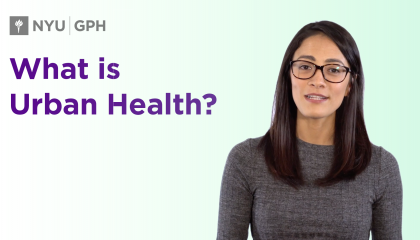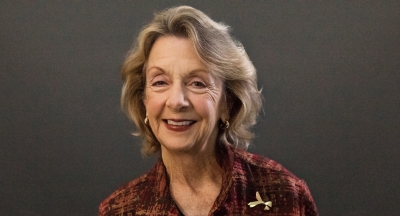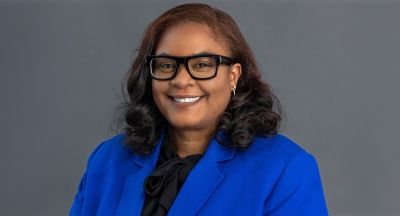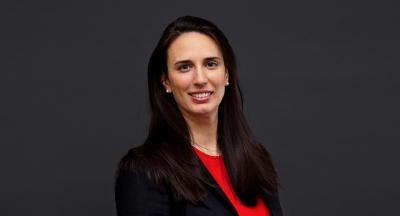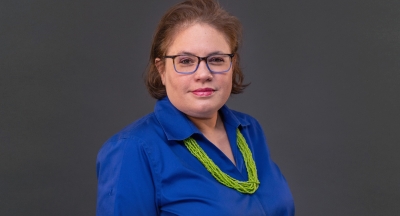By 2050, over 68% of the world's population will live in cities full of opportunity, yet brimming with challenges. Urban populations, in both low- and high- income countries, have some of the world’s most prominent health disparities impacted by natural and built environments, social and economic development, food security, air pollution, overcrowding, and politics. All of these factors deem urbanization as one of the most important demographic shifts worldwide. A career that specializes in urban health aims to analyze how such factors affect the health outcomes of large populations and develop innovative solutions to improve the quality of urban living.
Labs & Clubs
Global Action for Urban Health
Urban health is an evolving area of research, education, practice, and policy making. Students are in a strong position to be part of these developing activities to advance the evidence base on research, implementation and evaluation in urban health. The Global Action for Urban Health Lab, co-developed by Dr. Jo Boufford and Dr. Alexis Merdjanoff, provides a space for students both within and outside of GPH to collaborate on various projects around urban health. The primary goals of this lab are for students: (1) to learn about the role of cities in global health and the role of urban governance in health, including policy approaches both across agencies and in public-private partnerships in the context of the SDGs and UNHabitat’s New Urban Agenda (2) to develop a network of academic programs, faculty, and students across NYU focusing on urban health; (3) to engage with UN agencies and national/ municipal governments, international and domestic NGOs, urban health researchers, practitioners and policy makers worldwide (4) to develop skills for data collection, analysis and project implementation of priority urban health programs from collaborating organizations; and (5) to build on the platform of the International Society for Urban Health as a global network of researchers, educators, practitioners and policy makers committed to improving health and health equity in cities.
Urban Epidemiology Lab
In 2007, the world achieved a major milestone: 50% of the world’s population was living in urban settings and the proportion of people living in urban settings is expected to increase to 68% by 2050 (United Nations, World Urbanization Prospects: The 2018 Revision.) Given this reality, the Urban Epidemiology Lab (UEL) engages in research that aims to: (1) understand and improve the health of people living in urban settings and (2) help us conceptualize urban settings as “exposures” that may improve or detract from the health of urban dwellers.
The UEL’s primary focus is on substance use and infectious diseases such as HIV, Hepatitis B and C, and sexually transmitted infections. The UEL includes doctoral students, MPH students who are working on their thesis with Dr. Ompad, recent NYU GPH graduates, and post-doctoral fellows from New York University training programs. Most UEL members analyze epidemiologic data from one of Dr. Ompad’s studies. Opportunities exist for collaboration with other students, other NYU faculty, and faculty from outside of NYU.
Faculty at GPH
Jo Ivey Elizabeth Boufford
Melody Goodman
Alexis A Merdjanoff
Danielle C Ompad
Dr. Danielle Ompad is an epidemiologist whose work is focused in the areas of urban health, HIV, illicit drug use, and adult access to vaccines.
The conceptual framework that many people use to think about cities is that they’re dense, very diverse, very complex, and have a lot of health disparities…It’s great to create a prescription for health and social care for an individual but wouldn’t it be even better if those conditions already existed where that person could easily find the healthy solutions in their community?

With extensive experience in medicine, international affairs, health policy, and public administration, Dr. Jo Ivey Boufford is an expert in urban health, healthy aging, disease prevention, and health promotion and health disparities. Since college, Dr. Boufford has integrated activism and social justice in her education and practice by advocating for patient-driven care and more engagement with the community and the underserved. In 1985, she became the first woman to be elected President of New York City Health and Hospitals Corporation, the largest municipal system in the United States. She then entered federal government, serving as Principal Deputy Assistant Secretary for health in the US Department of Health and Human Services (HHS). While at HHS, she was the U.S. representative on the Executive Board of the World Health Organization. At NYU, Dr. Boufford has been a Professor of Public Administration and Dean of the Robert F. Wagner Graduate School of Public Service, as well as a Clinical Professor of Pediatrics at the NYU Medical School. In this episode she will tell us more about Urban Health and Governance as well as advice to MPH students.
